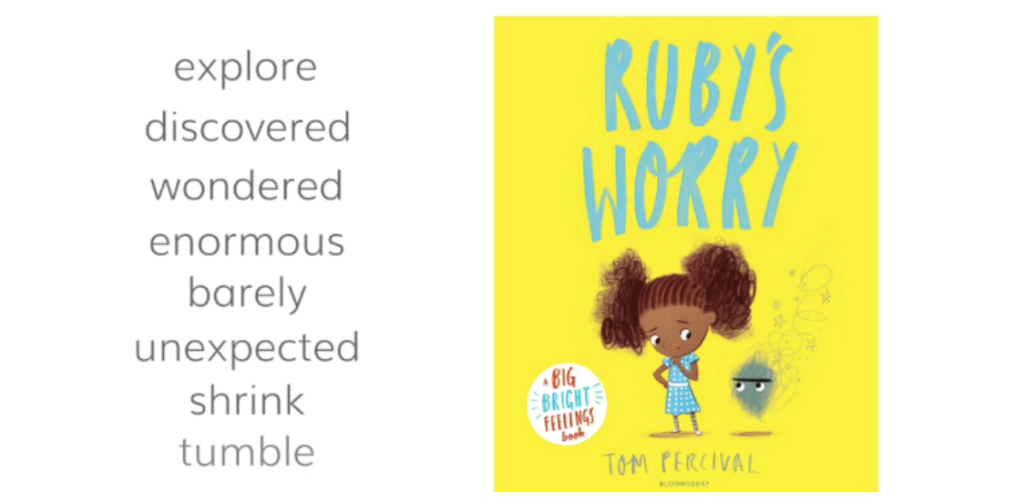Contact Newland St John’s
Newland St John’s CE Academy
Beresford Avenue, Hull
East Yorkshire, HU6 7LS
01482 305740
If you would like a paper copy of any section of this website please contact us using the details above.


In Reception and Key Stage 1, we complement our RWI Phonics programme with Talk Through Stories. Once pupils have graduated from the programme, they join whole class reading sessions which continues into Key Stage Two. All year groups share and enjoy a daily storytime so that we develop and nurture pupils’ love of reading.
Talk Through Stories
Talk Through Stories is used for all children in Reception and KS1 alongside RWI phonics. The books are carefully chosen to develop and deepen children’s vocabulary to prepare them for when they can read these books themselves. The sessions have been planned systematically to develop vocabulary focusing on tier two words that children are unlikely to hear in everyday life but they will encounter in stories. The book is first shared in ‘Story Week’ where during a 20 minute storytime children get to know the story really well: the plot, the characters, and their actions and motives. Then in ‘Vocabulary week’, we use 10 minutes a day to explore eight words from the story, specifically selected to develop children’s understanding of each word in the context of their everyday lives. We have chosen stories that we believe are worth reading and re-reading – stories that children will love. The aim is to get children talking about stories and using new vocabulary in different situations.

Whole Class Reading
Once pupils have graduated from RWInc, they join whole class reading lessons. Texts are carefully chosen to ensure they pose an appropriate level of challenge and interest. Our reading lessons are designed to ensure pupils spend time exploring a text as a whole class, with the teacher modelling expert thinking and reading aloud, pausing to clarify and question in order to guide and monitor comprehension. Pupils have the opportunity to independently read within the lesson in order to develop their fluency; in Year 2, we ensure fluency is developed through frequent echo reading and repeated reading. These lessons are driven by discussion based on a Big Question, to guide and develop the pupils’ understanding of the plot, setting and characters as they progress through the story. Pupils also have the opportunity to think and reflect through writing, with I Do, We Do, You Do used to explicitly model and support pupils.
Reading Plus
We use Reading Plus to accelerate pupils’ reading fluency through weekly class reading sessions. The programme enables pupils to read at an appropriate level whilst monitoring reading speed and comprehension. The programme is adaptive to pupils’ needs, and adjusts the challenge provided as and when necessary. It also develops pupils’ vocabulary through weekly vocabulary sessions. Reading Plus provides live assessment data which allows staff to be responsive to pupil needs in their whole class reading lessons.
Vocabulary
When planning, teachers identify key Tier 2 vocabulary that may obstruct comprehension. This vocabulary is then explicitly taught before pupils encounter it in the text. Pupils are supported to understand further unfamiliar vocabulary through the use of images.
Reading working walls
Our reading working walls display key vocabulary and our Big Questions with annotations. This is intended to support retrieval of key knowledge to support understanding and prompt connections across key plot points.
Newland St John’s CE Academy
Beresford Avenue, Hull
East Yorkshire, HU6 7LS
01482 305740
If you would like a paper copy of any section of this website please contact us using the details above.